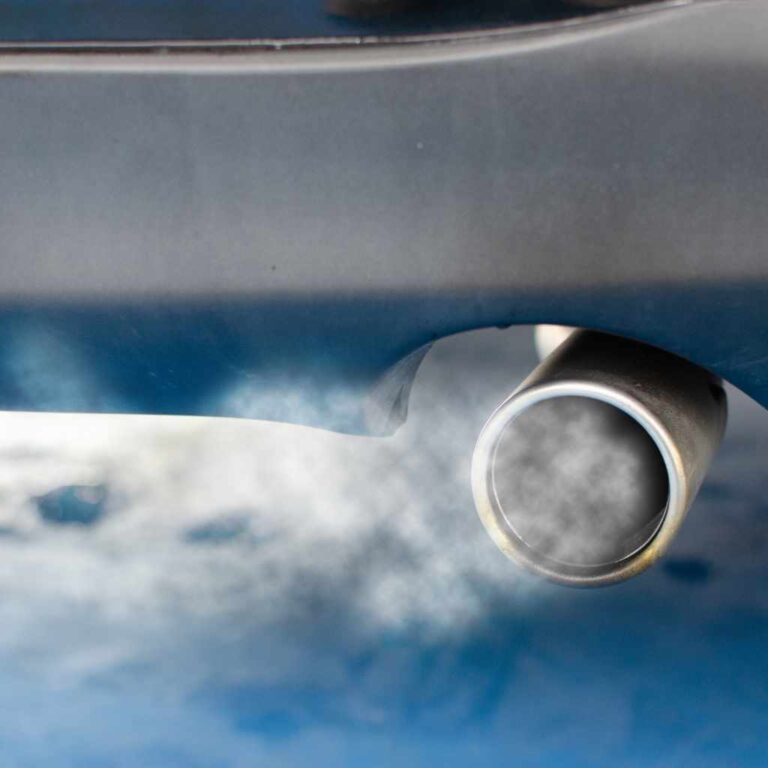How Many Quarts of Oil in a Car: Unveiling the Optimal Capacity
A car typically requires around 5 to 8 quarts of oil. Proper oil levels are essential for a vehicle’s efficient functioning and longevity.
Having the correct amount of oil ensures that the engine is properly lubricated, preventing excessive friction and wear. Additionally, it helps to regulate the engine’s temperature by dissipating heat. Adequate oil levels are crucial for avoiding engine damage and maintaining optimal performance.
It is important to check the vehicle’s manual or consult a professional to determine the specific oil capacity for a particular car model. Regular oil changes are recommended to keep the engine running smoothly and protect it from potential damage.
Understanding The Role Of Oil In Your Vehicle’S Performance
Understanding the impact of oil on your car’s performance is crucial. Knowing how many quarts of oil your car needs is essential for maintaining its optimal functioning and preventing damage to the engine. Stay informed to keep your vehicle running smoothly.
When it comes to maintaining your car’s longevity and performance, understanding the role of oil is essential. Oil serves as the lifeblood of your vehicle’s engine, providing lubrication, minimizing friction, and ensuring smooth operation. Let’s explore how oil lubricates engine parts, the impact it has on engine lifespan, and the consequences of having too little or too much oil.
How Oil Lubricates Engine Parts:
- Oil acts as a protective layer between moving engine parts, reducing friction and preventing wear and tear.
- It forms a thin film that coats components such as the crankshaft, piston rings, and camshaft, ensuring smooth operations.
- The lubricating properties of oil also create a barrier that helps dissipate heat generated by engine friction.
The Impact Of Oil On Engine Lifespan:
- Regular oil changes play a vital role in maintaining engine health and prolonging its lifespan.
- Clean oil ensures that engine parts stay well-lubricated, reducing the risk of excessive wear that can lead to costly repairs or engine failure.
- While oil degrades over time due to heat and contaminants, routine oil changes mitigate potential damage and keep the engine running smoothly.
The Consequences Of Too Little Or Too Much Oil:
- Insufficient oil can result in insufficient lubrication, causing friction between metal surfaces that can result in engine damage or failure.
- A lack of oil can also lead to overheating as there is not enough oil to dissipate the heat generated by the engine.
- On the other hand, overfilling the engine with oil can cause foaming, leading to reduced lubrication and potential damage to engine components.
- Excess oil can also put pressure on the seals and gaskets, resulting in leaks and loss of oil.
Remember, maintaining the proper oil level and changing it regularly is crucial for your vehicle’s performance and longevity. Regularly check your vehicle’s owner’s manual and consult with a trusted mechanic to ensure you’re using the right type and amount of oil for your specific car model.
So, never underestimate the importance of oil in keeping your engine running smoothly and efficiently for years to come.
Determining The Optimal Oil Capacity For Your Car
Determining the optimal oil capacity for your car is essential for proper vehicle maintenance. Knowing how many quarts of oil your car requires ensures optimal engine performance and lubrication.
When it comes to maintaining your car’s engine, one important aspect to consider is the oil capacity. Knowing the optimal amount of oil required for your car is crucial for its proper functioning and longevity. In this section, we will discuss the factors that affect oil capacity, methods for determining the optimal oil capacity, and the importance of consulting the vehicle’s owner’s manual.
Factors That Affect Oil Capacity:
- Engine size: The size of the engine plays a significant role in determining the oil capacity. Larger engines generally require more oil to function optimally.
- Engine type: Different types of engines, such as diesel or gasoline, may have varying oil capacities. It is essential to consider your engine type when determining the optimal oil capacity.
- Manufacturer specifications: Car manufacturers provide specific guidelines regarding oil capacity for each model. These specifications should be followed to ensure the best performance and avoid any potential damage to the engine.
- Oil reservoir design: The design of the oil reservoir or oil pan in a car can affect its capacity. Some reservoirs may hold more oil, allowing for a higher oil capacity, while others may have a smaller capacity.
Methods For Finding The Optimal Oil Capacity:
- Consult the owner’s manual: The most accurate and reliable source of information regarding your car’s oil capacity is the vehicle’s owner’s manual. It provides specific details and instructions for your make and model, including the optimal oil capacity. It is crucial to follow the guidelines mentioned in the manual to ensure the best results.
- Online resources: If you cannot access your owner’s manual or need additional information, reputable online resources can provide general information on oil capacities for various car models. However, it is essential to cross-reference this information with your vehicle’s specifications to confirm accuracy.
Importance Of Consulting The Vehicle’S Owner’S Manual:
- Engine performance: Using the correct oil capacity ensures that the engine is adequately lubricated. Insufficient oil can result in increased friction and wear, leading to poor engine performance and potential damage.
- Fuel efficiency: By maintaining the optimal oil capacity, your car can operate more efficiently, providing better fuel economy. Insufficient or excess oil can negatively impact the overall fuel efficiency.
- Warranty compliance: Many car warranties require following the manufacturer’s guidelines, including the specified oil capacity. Failing to do so may void the warranty, potentially resulting in hefty repair costs.
- Preventive maintenance: Adhering to the recommended oil capacity is a vital part of preventive maintenance. It helps in preserving the engine’s lifespan and avoiding costly repairs in the long run.
Remember, always consult your vehicle’s owner’s manual to determine the optimal oil capacity for your car. By following the manufacturer’s guidelines and considering the various factors that affect oil capacity, you can keep your engine running smoothly and efficiently.
Common Misconceptions And Myths About Oil Capacity
There are several common misconceptions and myths regarding the oil capacity of a car. It is important to understand that the amount of oil needed varies depending on the vehicle’s make and model, and it is always recommended to refer to the manufacturer’s specifications rather than relying on general assumptions.
Many car owners have misconceptions and beliefs about oil capacity that may not be entirely accurate or true. In this section, we will debunk some common myths surrounding the amount of oil your car needs. Let’s take a closer look:
Myth: More Oil Means Better Engine Performance
- Using more oil than the recommended capacity does not improve engine performance.
- Putting excessive oil in your car can lead to foaming, which can hinder effective lubrication.
- Overfilling the oil can also cause increased pressure inside the engine, resulting in leaks and potential damage.
Myth: All Cars Have The Same Oil Capacity
- Each car model has a specific oil capacity requirement, determined by the manufacturer.
- The recommended oil capacity can vary depending on the engine size and design.
- It is crucial to consult your car’s manual or speak with a qualified mechanic to determine the correct oil capacity for your specific vehicle.
By debunking these misconceptions, we can provide you with accurate information to help you maintain your car’s engine and ensure optimal performance. Remember to always refer to your car’s manual and seek professional advice when in doubt about oil capacity.
Now that we have cleared these misconceptions, let’s move on to understanding the importance of maintaining the correct oil level in your car.
The Consequences Of Incorrect Oil Capacity
Incorrect oil capacity can have serious consequences for your car. Knowing how many quarts of oil your car needs is crucial to prevent engine damage and maintain performance.
When it comes to maintaining your car’s engine, ensuring the correct oil capacity is essential. Failing to do so can lead to various consequences that can affect your vehicle’s performance and longevity. Let’s explore the risks of both overfilling and underfilling oil, as well as how incorrect oil capacity can impact engine efficiency and performance.
The Risks Of Overfilling Oil:
- Increased pressure: Overfilling your engine with oil can result in excessive pressure within the lubrication system, potentially leading to oil leaks and gasket failures.
- Foaming: Oil needs space in the crankcase to circulate properly. Overfilling can cause foaming, compromising the oil’s ability to provide proper lubrication and cooling to crucial engine components.
- Oil contamination: Excess oil can come into contact with moving engine parts and pick up debris, such as metal shavings or sludge, resulting in accelerated engine wear and potential damage.
The Dangers Of Underfilling Oil:
- Insufficient lubrication: If the oil level is too low, critical engine components may not receive adequate lubrication. This can increase friction and heat, leading to premature wear and potential engine failure.
- Overheating: The oil not only lubricates but also helps cool the engine. With insufficient oil, the engine can overheat, further aggravating wear and potentially causing severe engine damage.
- Increased friction: Without enough oil, metal components within the engine can rub against each other, leading to excessive friction and wear.
How Incorrect Oil Capacity Affects Engine Efficiency And Performance:
- Reduced fuel efficiency: Insufficient oil can increase friction between moving parts, forcing the engine to work harder and consuming more fuel. This can result in reduced mileage and increased operational costs.
- Power loss: Incorrect oil capacity can adversely affect engine performance, causing a decrease in power output and overall driving experience.
- Engine stress: Overfilled engines or those running with inadequate oil levels place additional stress on various components, including the crankcase, pistons, and bearings. This can lead to premature wear and potential mechanical failures.
Maintaining the appropriate oil capacity in your car’s engine is crucial to ensure optimal performance, longevity, and overall vehicle reliability. By understanding the risks associated with overfilling or underfilling oil, you can take the necessary precautions and seek professional advice to avoid any potential issues.

Tips For Ensuring The Right Oil Capacity
Ensure the right oil capacity for your car by knowing how many quarts of oil it requires. This essential tip will help you maintain your vehicle’s performance and prevent any oil-related issues.
Performing regular oil level checks:
- Regularly checking the oil level in your car is essential to maintain optimal performance and prevent potential damage.
- To perform an oil level check, park your car on a level surface and wait for the engine to cool down.
- Locate the dipstick, usually marked with a yellow or orange handle, and remove it from the engine.
- Wipe the dipstick clean with a cloth and reinsert it fully into the dipstick tube.
- Remove the dipstick again and observe the oil level. It should fall between the minimum and maximum marks on the dipstick.
- If the oil level is too low, add the appropriate amount of oil according to your car’s specifications.
Understanding the importance of oil changes:
- Regular oil changes play a vital role in maintaining the health of your car’s engine.
- Over time, engine oil breaks down and becomes contaminated with dirt, debris, and by-products of combustion.
- Regular oil changes remove the old, deteriorated oil and replace it with clean, fresh oil, ensuring proper lubrication and reducing friction.
- Additionally, regular oil changes help to prevent the buildup of harmful deposits and sludge, which can cause engine damage and reduce fuel efficiency.
- Consult your car’s manufacturer or the owner’s manual for recommended oil change intervals, as they can vary depending on the vehicle and driving conditions.
Seeking professional advice for oil capacity-related concerns:
- If you have any concerns regarding the oil capacity of your car, it is always best to consult a certified mechanic or seek professional advice.
- They have the knowledge and expertise to determine the correct oil capacity for your specific car model.
- Professionals can also provide guidance on the appropriate type of oil to use, taking into account factors such as climate and driving conditions.
- Don’t hesitate to reach out to a professional if you notice any abnormalities in your car’s oil level or if you’re unsure about the correct oil capacity for your vehicle.
By following these tips, you can ensure that your car’s oil capacity is maintained correctly, ultimately prolonging the life of your engine and optimizing its performance. Regular oil level checks, understanding the importance of oil changes, and seeking professional advice when needed are crucial steps towards keeping your car running smoothly.
Frequently Asked Questions For How Many Quarts Of Oil In A Car
How Many Quarts Of Oil Does My Car Need?
Your car’s oil capacity is measured in quarts. To determine how many quarts of oil your car needs, refer to your vehicle’s owner’s manual. The manual will provide you with the specific oil capacity for your car’s engine. It is essential to use the recommended amount of oil for optimal engine performance and longevity.
Regularly checking and maintaining the correct oil level is crucial for your vehicle’s overall health. Remember to use the right type and grade of oil recommended by the manufacturer and adhere to the recommended oil change intervals. This will help prevent engine damage and ensure smooth operation.
If you’re unsure about the amount of oil your car needs, consult a professional mechanic or refer to the car’s manual for accurate information.
Can A Car Run On 4 Quarts Of Oil?
Yes, a car can run on 4 quarts of oil.
How Many Quarts Of Oil Is Too Low?
The oil level in a vehicle should never be too low. Keeping the oil level within the recommended range is vital for the proper functioning of your engine. When the oil level is low, it can lead to insufficient lubrication, increased friction, and damage to engine components.
If you notice the oil level dropping below the minimum mark on the dipstick, it is important to add oil immediately. It’s advisable to consult your vehicle’s manual to determine the specific oil capacity and ensure you add enough to bring the level back to the optimal range.
Regularly checking and maintaining the oil level will help prolong the life of your engine and prevent potential costly repairs.
Is 4 Quarts Of Oil A Lot?
No, 4 quarts of oil is not a lot. Most vehicles require around 4-6 quarts of oil for a complete oil change. However, it is important to check your vehicle’s owner’s manual to determine the exact amount of oil needed.
Using the correct amount of oil ensures proper lubrication and helps maintain the engine’s health and performance. Adding too much oil can lead to over-pressurization and potential engine damage, while having too little oil can cause insufficient lubrication, leading to increased wear and tear.
It is always best to follow the manufacturer’s recommendations and regularly check your vehicle’s oil levels to ensure optimal engine function.
Conclusion
To sum up, understanding how many quarts of oil your car needs is essential for maintaining optimal engine performance. By referencing your car’s owner’s manual or consulting with a professional mechanic, you can easily determine the correct oil capacity. Remember that using too little or too much oil can have adverse effects on your engine, leading to increased wear and tear or even engine failure.
Regularly checking and changing your oil, as well as using the recommended oil grade and capacity, will contribute to the longevity and overall efficiency of your vehicle. Prioritizing proper maintenance and care for your car’s engine will not only save you time and money in the long run but also ensure a smoother and more enjoyable driving experience.
Keep these considerations in mind for the health and longevity of your car’s engine.







